|
I don't know about you, but I feel busier than ever, despite the fact that I never leave home! With everyone being roughly two months into work-from-home, you probably have your office area set-up and if you have children, they are probably wrapping up formal schoolwork. Now, you’re finally able to turn your attention back to optimizing the situation. What can you do to make work-from-home work for you? Last week, I posted a collection of tips for managing your remote team. This week, I want to share what I’ve learned about managing myself and my time while being at home all day. Forget about the 9 to 5Everything you think you know about work – throw it out. You do not have to be sitting in front of your computer staring at your email from 9 to 5 to be a “good” employee. In fact, that mentality makes you less productive and more miserable. Have your goals for the day, week, month, and project and move towards them every day. Don’t focus on time. Focus on progress to goal. This is a crucial shift if you want to work from home without having a meltdown or having work take over your home life. Keep at least one day per week without meetingsIf I have meetings every single day of the week, I cannot do important projects that require thought-work or intensive writing. Meetings break up the day and pull your focus away from what you need to produce. They are necessary, especially in a remote arrangement, for facilitating teamwork and communication. But they must be kept in their place. I recommend one day every week without meetings to give you time to make progress on important projects. Also, I recommend doing donor meetings one week “on” and one week “off” when working from home. The “off” weeks give you time to recover as well as time to set up the next round of meetings. Which day will you choose to be your meeting-free day of the work week? No, you don’t have to dress upI see so many recommendations saying something like, “Get up and get dressed every day, as if you are going to work, to maintain a sense of normalcy.” If that works for you, more power to you. Cope however you can. But – to my mind – one of the benefits of working at home is being able to be comfortable and I’m not about to give that up just to trick myself with a false sense of normalcy. Most days I wear a tank top and yoga pants. When I have meetings, I throw on a cardigan, pull up my hair, and maybe put on some earrings. I relish my comfort and it makes me more productive. If getting dressed works for you, great! But, if you’d rather be cozy, I give you full permission to embrace that aspect of remote work. Eat the Frog“Eat the Frog!” means do the thing you are dreading having to do, FIRST. (If you had to eat a frog on a Tuesday, when would you do it? You’d do it first so you wouldn’t spend the whole day worrying about it.) Do it first and then it’s over with. If you have a tedious or boring or time-consuming task, just get it done. Rip off the Band-Aid and then it’s over and you’ve freed up valuable head-space for the other tasks in your list. BatchingGot a pile of thank you notes to write? Do them all in one two-hour period. It’s been proven that people who sit down to pay their bills only once or twice per month are happier with their finances than those that pay each individual bill as it comes in. Beyond the psychological benefits, it’s efficient. I also do it with laundry. I wash giant batches on the weekend and fold it all in one big push. Doing repetitive tasks all together is time-saving and more importantly, it saves MENTAL energy. You aren’t switching gears back and forth all the time. Make a list of 3-4 work tasks and 3-4 personal tasks that you could try batching. Pomodoro MethodMaybe there’s an “Eat the Frog” kind of task that you don’t like to do but it’s also recurring or repetitive? How to handle that? I like the Pomodoro Technique for this. This is a time management technique in which you decide how long you want to work on a task, set a timer, and then once you do that allotment of time, you get a break. For instance, maybe you have a tedious data clean-up project that you’ve been procrastinating on? Tell yourself you are going to work on it for 25 minutes and then take a 5-minute break. Take the break and then repeat at whatever intervals make sense for your deadline. (If the break is not long enough to motivate you or the time on the task isn’t enough to show real progress, tweak the times until you feel motivation and purpose.) I use this for housework: clean something, anything for 15 minutes and then I can stop. This technique helps you overcome the biggest hurdle: STARTING. I find the 15-minute requirement gets me off my booty and cleaning. Once I’m up, I generally will finish the task and work beyond the 15 minutes. Some days, I will quit after the allotted time. And that’s ok. I know tomorrow I’ll do it again. What work task could you use this technique on this week? Give it a try and let me know how it goes. Have a plan for your mealsFood can become frustrating when working from home. When you go to an office, you either have packed a lunch or you are going out to a restaurant to grab something. But at home, you will either must have something ready or you’ll end up cooking all day. Other options include being too hungry to work or eating junk food snacks which will catch up with you in the long run. And don’t get me started on how much it sucks to have a tight schedule of Zoom meetings and nothing ready to eat in between. I tend to do some protein shakes in the morning and cook big meals on Sundays and eat the leftovers for other meals during the week. Could you use your crockpot or insta-pot to have something ready to go while also producing leftover? Find a few recipes to try out next week. Self-careI’m a huge advocate for self-care, especially when you work-from-home. A Zen proverb says, “You should sit in meditation for 20 minutes a day. Unless you are very busy, then sit in meditation for an hour.” It’s true that you are more productive when you care for yourself well and do the things you know you should do to be your best self. I define discipline as keeping your promises to yourself. One of the benefits of working from your house is that if you need a meditation break or a yoga break or an exercise break, there’s no one to see you doing it. My office doubles as a home yoga studio and meditation space. Prioritize self-care and it will make you more productive. Sharpen your sawDo things that make you more motivated and productive at work. For me, researching, writing about, and teaching fundraising techniques keeps me at my best at my day job. Learn as much as you can about emerging digital opportunities and explore online learning options, which are exploding everywhere right now. Managing your own mindset and motivation level will pay huge dividends. Have you tried any of these techniques before – in or out of the office? What has worked for you that perhaps I didn’t cover here? Let me know in the comments below. Comments and questions are, as always, welcomed and encouraged! Cheers! Jessica PS - If you liked this post, you might also like these:
PPS - I hope you’ll continue the conversation by subscribing to Real Deal Fundraising. When you subscribe, you’ll get my FUNdraising Friday emails, which includes the best articles on fundraising, productivity and cool stuff every week. The whole thing is weekly curated awesomeness as well as freebies like webinars, instructional videos, and whatever else I can put together to be helpful to you! Brace yourself. I'm going to use a buzz word. Maybe that’s two words. Anyway. Here’s a definition of self-care that I love from Psych Central: “Self-care is any activity that we do deliberately in order to take care of our mental, emotional, and physical health. Although it’s a simple concept in theory, it’s something we very often overlook. Good self-care is key to improved mood and reduced anxiety. It’s also key to a good relationship with oneself and others.” Deliberately. You have to do it deliberately. Plan for it. Schedule it. Make it part of your routines. Also note, that it doesn’t just help you. It helps others because it makes us better partners and collaborators. You’ll be less stressed, healthier, more patient, and probably more kind. Taking good care of ourselves now is perhaps the most important thing we can do . It will prevent burn out and boredom and restlessness that will help us stay home and flatten that curve. But, I would argue that for non-profit pros, it's absolutely essential. Here's why: Non-Profit Professionals and Self-CareSurely you know, that non-profit and fundraising roles can be extremely stressful and that was true long before COVID-19. The Chronicle of Philanthropy ran an article in August of 2019 about new research showing that 30% of fundraisers plan to leave the field entirely in the next two years! There are many reasons for this startling statistics, here are a couple:
I can guarantee that the "tremendous pressure to succeed" will only increase as we move through the coronavirus crisis and into the recovery phase. What does all this have to do with self care? You might ask.Well, in order to be the absolutely All-Star Fundraiser I know you can be, you have to be your best self. You can’t succumb to nonprofit burnout. The industry needs folks like you to stay in fundraising. With 3 out of 10 fundraisers planning to depart the entire sector (before this crisis), nonprofits will need YOUR unique skills. So, I’m going to encourage you to take care of you. Shouldn't we be lobbying for a better budget, higher salaries, more cooperative leadership, and more reasonable goals? bsolutely! In order to do that, you have to be in top form. You will need even more resilience to raise amazing amounts of money while also changing an industry. I’m going to challenge you just to go just a bit further in taking excellent care of yourself. Self-care: it isn't (all) about crystals and bubble baths!Self-care has this modern connotation of it being something over-worked wine mommies do. They're looking for a "Calgon-Take-Me-Away" bubble bath. (I just totally dated myself with that commercial reference, didn't I?) While those sorts of indulgences and treats do have a place in a well-rounded self-care regimen, they are not the core of a self-care practice. It is not our grand gestures that keep us healthy in body, mind, and spirit, but the small things we do daily. You can quote me on that one. You need to identify small, sustaining daily habits that can be done on 80-90% of days to help you be in the best form for yourself and others. To help you build that practice, I've created the Self Care Mind Map and the 90 Day Habit Tracker. (To download both files in PDF format, as well as view my entire Self-Care for Non-Profit Pros webinar, click here.) The process starts with the Self-Care Mind Map. Self-Care Mind Map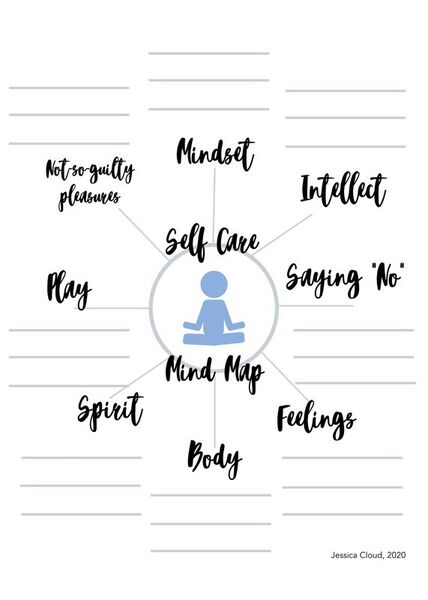 The Self-Care Mind Map is divided into eight areas of our life and I want you to stretch yourself and think of three things you could do in each category that would improve your quality of life. You are not committing to doing any of these things at this point. Just write whatever comes to mind. Mindset You need to fill your brain with a positive can-do attitude and your mind needs to just rest and be clear sometimes. For my Mind Map, I put that I could listen to positive podcasts, meditate for at least five minutes per day, or take periodic detox breaks from social media. Yours might include affirmations, visualization, reading self-help books, or audiobooks. There are so many options to build a healthy, resilient mindset. Intellect Generate some ideas about how you can feed your mind. For example, I love documentaries, about the British Royal Family and World War II (bonus if it’s about both)! I also like to read on many different topics and I like learning foreign languages using the Duolingo app. Saying “No” It might seem like we are having to give up too much these days. But think about what causes you unnecessary stress or takes away too much time. For me, I don’t consume news in excess and I’m working really hard to stop scrolling on my phone in the mornings. Feelings If we don’t acknowledge and process our feelings, they either appear in the body as illness or they manifest in destruction behaviors (like addiction) and interpersonal patterns (codependency). I wrote on my Mind Map that could set firm boundaries about my needs, practice focusing on what I can control, and I free-write in my journal three quick pages most mornings. (Morning pages is a practice from The Artist’s Way by Julie Cameron and I highly recommend this book for any creative person.) Yours may be committing to attend 12-step meetings (yes, they have lots of these online and via phone these days), visiting a counselor (also available online), or writing a letter to express a long-held grudge (even if you don't send it). What, if you were deeply honest with yourself, do you need? Body There are endless options for this category: you could floss more regularly, lift weights, eat more vegetables, go for a daily walk, get 8 hours of sleep most nights, the list goes on and on. The challenge here is to narrow it down to what you most need and what will truly provide you with the most benefit. Oh yeah! And it has to be something that you can and will do! My two that make me feel amazing are daily yoga practice of at least 15 minutes and getting 10,000-15,000 steps on my Fitbit daily. Spirit Even if you are a hard-core atheist, you still need to attend to your spiritual side (even though the word “spirit” might make you bristle a little). Hear me out: Even if you don’t go to church, do you have a community, a strong friend group that you can rely on. Do you sing daily? Singing is a powerful kind of psychological medicine. I also like reading poetry (and writing it too). What other things can you think of to nourish your sense of wonder and awe at this whole being human thing? Play Play has a few particular characteristics. First, play is pleasurable. Sounds like “duh!” but things in this category should be fun. Second, we enter into play voluntarily and most often it is self-chosen and self-directed. So, no putting things you think you “should” do in this category. Play makes us feel like we can do it all day. There’s a feeling of time not moving when you play. My kids help me play. These days, we love having family game nights and family movie nights. Those are precious moments, yes. But I also enjoy them because they are fun for me. Not-so-guilty pleasures Now, we are really getting into the nitty-gritty. This is where you can let loose a bit. What are three things you might call “guilty pleasures”, the things you are a little embarrassed to admit to someone you respect that you enjoy. I love a good bath. But, that’s become like the stereotype of the harried mother trying to do self-care. Still, it’s a happy place for me. I also love showtunes! And I have an entire collection of vinyl records from Broadway and movie musicals because no one else wanted to buy them! I also love really giant (like Alice in Wonderland-style) ridiculous cups of hot tea. This list will be your go-to when you are ready to indulge. 90 Day Habit TrackerOk, now that you’ve filled out your entire mind map, pick 3-5 that you know would improve your quality of life if you did them every day (or most days). If you do this with 80-90% adherence, I’m telling you it will completely change your life. Feel free to throw out a habit if it doesn’t work after a couple of weeks or a month, then replace it with something else. You can also change the duration that you do one practice. For instance, if you started off with 20 minutes of meditation and you find you cannot fit that in, drop the goal to only 5 minutes a day. Have fun figuring out what makes you feel the best. Back in 2017, I set myself a challenge like this. I wanted to do #yogaeverydamnday and get 10,000 steps every day for 30 days. At the end of that month, my mind was sharp and clear, I had lost a bit of weight without much strenuous effort (and while eating pasta and cannoli when traveling), and when I woke up in the morning I didn’t creak with aches and pains. It was nothing short of remarkable. When I described the amazing benefits I gleaned from this experiment to my aunt, she stared at me seriously and asked, “Well, why the hell did you stop?” I did not have any good reason. At that point I realized I needed to build this into my life in a sustainable way. There will be days that I twist my ankle and can’t achieve the 10,000 steps. There will be days that I'm too busy with meetings for yoga. That’s ok, too. But working toward 80-90% adherence to healthy habits bring tremendous results. ConclusionAlso, please remember to find beauty and practice gratitude. I have been snapping pictures of flowers every day, because I’m so genuinely grateful that I can get outside and walk. The weather has been beautiful here (whereas my brother and his family are stuck in late season snow in Colorado) and I have other friends who are stuck inside their homes for the foreseeable future. So, the best thing we can do for ourselves and others right now is to look inward and tend to ourselves like one would tend a garden, cultivating compassion for self and others. The result will be grace. Grace for ourselves, for our families, our kids, our elders, the healthcare workers, the UPS drivers, our neighbors, everyone we interact with. And please tip your cashiers and delivery drivers very generously, as you are able. To get through all of this, we will need to take this extra time at home with our family to cultivate our best habits of self-care, which will fortify our body, mind, and spirit. These practices will give us the resilience we need to get through this crisis successfully and come out the other side of stronger in many ways. If you already have a self-care practice, what does that look like for you? If you used the Self-Care Mind Map, what kinds of things did you come up with to try? Did any of them surprise you? In a couple of weeks, I want to know what benefits you've been able to garner from making some of those things habits? Please let me know in the comments below. And of course, if any of this stirred up questions, send me your question in the comments and I'll address it. Cheers, Jessica Cloud
PS – If you liked this post, you might also like these:
PPS - If you found this article helpful, please comment and let me know. Also subscribe to Real Deal Fundraising so you don't miss a post! I feature a new blog post every Thursday and when you subscribe you’ll start to receive my FUNdraising Friday emails where I bring you curated information and super cool freebies exclusively for my subscribers! This sign hung in my various offices for over a decade. I guess you could consider this a motivational poster of sorts, but I think it was actually a very early meme. These two sentences have become my fundraising mantra. Something I repeat to keep myself focused and to cope when things get rough.
Because I’m both a nerd and a yogi, I looked up “mantra” in the Oxford English Dictionary. The term “mantra” comes from Sanskrit and the root words mean basically: "thought support" or device to support thought and action. This is exactly what this simple sign has been for me throughout my career. Even the repetitive rhythm of it helps in its function as thought support. The main thing is to keep the main thing the main thing. Raising money is the main thing. Let me tell you the story of this mantra: To give credit where it is due, the original sign was created for me by Mark Nelson, who was the Treasurer for the Libertarian National Committee (the Libertarian Party) in 2004-2005. So, he was a board officer for the organization I was working for at the time. I was the only full-time fundraiser for the national organization and I was only 23 years old. Their theory was to hire smart young people who would be “cheaper” salary-wise for the DC area. The exchange was that I would get a ton of valuable training and experience and they would get energetic labor. However, I was overwhelmed and I think Mark sensed it. I was managing a conversion from an antiquated custom donor database to Raiser’s Edge. I was producing a monthly newsletter for our recurring donors. I was helping to plan the national convention and scouting locations for the next convention. I was recruiting and training paid callers to renew memberships via phone and managing our intern program. With the help of a consultant, I was managing monthly direct mail campaigns and planning fundraising events. Then, because the LP was a political organization, staff frequently got pulled into controversies and political discussions. I’m tired and anxious just typing about everything I was called to do. As treasurer of course, Mark had a keen interest in keeping me motivated. On a trip to our DC office, he walked in and taped the sign to the wall above my computer monitor and explained what it meant. The “main thing” meme helped me to prioritize my work and keep my head on straight. It also reminded me that the officers of the organization supported me in my main role. My job as a fundraiser is revenue generation. Everything else must fade in comparison. When I left the LP, I took this simple sheet of copy paper with me and posted it in my new office at the University of South Carolina. This concept continued to keep me focused as I was hiring 110 student callers per semester to raise $1.47 million via phone annually. When I took a job as behind-the-scenes project manager with RuffaloCODY (now Ruffalo Noel Levitz), I would see the sign and feel sad. I knew then that I missed frontline fundraising. I missed chasing down a dollar goal. It helped me navigate my career back to raising money. At some point in changing offices, the original paper got ragged and I disposed of it. But, when I was at Southern Miss and we tripled our annual fund income in one year, I recreated the poster for some of our gift processors who were overwhelmed and wanted a reminder of how their work connected to the big picture. It became a bit of an office-wide mantra. Now that I’m back at a small shop, I think of this mantra often. I try hard to “stay in my lane” and keep the focus on fundraising. There is much to do, the need is great, and it is easy to feel like you are never doing quite enough. But, the main thing . . . is to keep . . . the main thing . . . the main thing. And, raising money . . . is the main thing. At any organization, you will be asked to do many mundane things (I collectively call them TPS reports). These include: expense reports, submission forms, demographic changes in database, meetings, etc. Do these things, but strive to automate those tasks as much as you can so that they don’t distract you from the main thing: raising money. At some organizations, especially those that are not organizationally mature, fundraisers will get pulled into political discussions and controversies. Continue to come back to mission and how the main thing (fundraising) supports that mission. When people around you go low, you go high. Keeping focused on raising money is the high road. The main thing is to keep the main thing the main thing. Raising money is the main thing. What’s your fundraising mantra? How do you keep yourself focused? Comments and questions are, as always, welcomed and encouraged! Cheers, Jessica Cloud PS – If you liked this post, you might also like these:
PPS - If you found this article helpful, please comment and let me know. Also subscribe to Real Deal Fundraising so you don't miss a post! You'll get my guide to Call Center Games for Free! Part of my mission at Real Deal Fundraising is to support young fundraising professionals so that they stay in this industry and grow their careers.
To that end, I’ve been thinking about which skills I would advise a new fundraising professional to cultivate in order to have the best chance of career success. Here’s my list in no particular order
Most of these are abstract skills and really more traits that you can cultivate. All of them can be developed and maintained. Of the eight, I believe “Integrity” is the most important because it is foundational. The rest simply don’t matter without it. Second most important, in my estimation, is curiosity because it is engine behind your growth in this industry. Even if you have all of the other skills, you won’t keep up with the changes and trends without the drive to continually learn. To that end, I’ll continue to provide information and resources here on Real Deal Fundraising so the professionally curious can get the ideas they need to succeed as fundraising professionals. Did I overlook an essential fundraising skill? What would you add to this list? Comments and questions are, as always, welcomed and encouraged! Cheers, Jessica Cloud PS - If you liked this post, you might also like these:
PPS - If you found this article helpful, please comment and let me know. Also subscribe to Real Deal Fundraising so you don't miss a post! You'll get my guide to Call Center Games for Free! I was a bullet journal skeptic. Lots of smart friends that I respected seemed to be jumping on this bandwagon but it seemed to me to be a way to waste a lot of time color coding with fancy pens. So, I asked on Facebook for someone to explain to me what all the hype was about. If you aren't familiar with the concept of a bullet journal, watch this video below. Then you can read about my conversion to bullet journal or bujo (as the bullet journal junkies call it) below the video. After reading comments from my friends and watching this video and others, I decided to try using a bullet journal as a way to help me organize my work more effectively and to integrate my home life and work life. I've been doing it now for a little under a month and I'm a fan. Here are some reasons why I recommend you experiment with this method.
If you love your bullet journal, let me know why in the comments below. If you want to try it out, do so and report back here to tell us how it's working for you! Most fundraisers have to travel for at least some portion of their time. My daughter (now 7) was very spirited and attached to me. So, I didn't travel without her until she was 3 and a half. We are are very lucky because my husband is a stay-at-home dad and he was happy to travel with me to conferences a few times a year. Since we homeschool, they still travel with me quite a bit
Luckily, my son (almost 2) is a bit more independent and doesn't mind short-term separations. This means that I travel without my kids more and more these days. And it's important to me to keep connected to my kids when I'm on the road. Some days it's really tough because my schedule is packed, morning to night. Other times, I'm just exhausted from time changes and travel delays. Here are some quick ideas that have worked for me to stay connected with my kids when I'm on the road. 1) Facetime and Skype This one is obvious but it wasn't that long ago that these tools weren't widely available. Now, they are available to use almost anytime and anywhere on your phone. I can call from the airport, hotel or even when I'm out and about. These tools are especially important for my son who is too small to talk on the phone or understand when I send messages in any other format. With my daughter, I get updates on what she did for school work and her current projects and with my son I mostly sing songs that we sing at home, etc. 2) Flower power My daughter and I have a thing that whenever she's not with me, I take pictures of beautiful flowers and send them to her dad (or sometimes grandmother) so she can see the flowers. But, really it is just a confirmation that she's continually on my mind and she gets to be a part of the trip. Beyond flowers, I also take pictures of anything that I think she would love to see or would find interesting. (Photo above was one of the pictures that I took and sent to my daughter while I was in Boston today.) I took a trip this week and she got 5-6 flower pictures, a picture of a replica ship from the Boston Tea Party, and a picture of the pastry cases in a fabulous cannoli shop. 3) Souvenirs If your kids are like mine, they have ENOUGH knickknacks. Our fridge isn't magnetic and I can't abide the idea of trying to keep a snowglobe from breaking in my luggage. So, we have a few preferred types of souvenirs: pencils (that she can use for her schoolwork and be reminded of our travels), patches (which we sew on her travel backpack), and educational books or coloring books. Do you have travel rituals that keep you connected with your kids when you are doing work travel? Any additional good ideas for the little kids? I work from home and it is difficult to get enough movement when you walk basically to the kitchen, your office and then to your bedroom every day. I had gotten lax in my exercise regimen (what there was of it) and was waking up feeling stiff and sore every morning.
So, for these reasons, I decided to challenge myself. I wanted to do two things every day: at least 20 minutes of yoga and get 10,000 steps. I add a daily entry indicating that I have done it on my Facebook profile with a status update and the hashtags: #yogaeverydamnday and #10Ksteps. Probably it annoys more than 3/4 of my Facebook friends, but I don't care. In my opinion, I'm helping them with their own practice of scrolling past things that annoy you. By Day 10, something weirdly amazing started to happen. I had had a terrible day. My kids had gone bonkers. It was a weird, off day and I basically ate my weight in Mexican food to cope. It was 9PM, my children were finally asleep and I only had like 3,000 steps. What did I do? I stayed up until midnight and got those damn steps, that's what I did! I could have just stopped posting about it on Facebook and no one would have noticed or cared. But, at this point, I was invested. I didn't want to stop for one bad day and have to "start over" with another 30 days. Intractable stubbornness had set in. That stubbornness made me do it because I wanted to, just because. Even though it was hard. Even though there were no gold stars and no one would have cared if I stopped. Now, I'm on Day 15 and I'm starting to see more and more benefits, but the biggest is just the satisfaction that I didn't freaking quit. Why am I posting about stubbornness on a blog post that's FUNdraising Friday? For a few reasons:
All that said, where in your work can you activate the power of intractable stubbornness? What areas of your personal life could benefit from the same mindset? Like many fundraisers, I’m goal-oriented. I love that feeling of accomplishment when the goal number has been exceeded or the big gift comes in. In fact, I might be addicted to this feeling. Because when I am plugging along doing my regular work without the big hoopla, sometimes I don’t feel like I’m being productive.
I was feeling unproductive this week. Not because I wasn’t busy or hadn’t made significant progress, but because July is this time of sowing, not reaping. One of my marketing colleagues was complimenting me on some of the important steps I had made for my organization this year and particularly this summer, and suddenly, it was clear to me. I need to honor the sowing part of my work, not just the reaping. Success is not all about the big gestures, the payoff, or the celebration party. Most of the time, success is about the small but consistent daily efforts that move your career and your institutions forward. The real measure of success isn’t like skydiving, it’s more like ten minute daily walks. So, put your plans together. Write those daily thank-you notes. Build those relationships. Plant those seeds. The harvest will come. But it’s those unremarkable daily actions that pave the path to success. What do you want to accomplish this week?
No, that question is flawed. That's a pie-in-the-sky question that lures you into making a to-do list that spills over the edge of your desk and onto the floor. The list will be unrealistic and you will feel like a failure come Friday. Buzzkill. What are the 3 things you MUST get done this week? Write them down and write down ONLY three. If you get all three done today or tomorrow, you can always do it again and make another list. But start with just three things. For most, summertime is a time to plan and prepare. This can cause us to feel like we aren't doing much and so we load on too many tasks to feel more productive. Pull back from this instinct. You'll ultimately get more done and be more successful. Start with just three things. It will feel attainable and once you feel you can attain it, you can and will. One task is too few to feel productive, two tasks just feels weird, and any more than three and your list is too long. Just three things. As the song goes, "Three is a magic number." Just. Three. Things. What will you accomplish this week? Hey you. Yes, you. Sitting at your work computer munching on your toasted bagel with cream cheese. And you there, scrolling on your phone on public transport. And you, scrolling on your laptop killing a bit of time before your staff meeting. I’m talking straight to you. All of you.
You are amazing. Really. Truly, amazing. You get up every day and do a job that most people would be scared out of their wits to do. You ask people for money and provide no tangible product in return. That’s hard work. And that work requires a broad-ranging and diverse skill set that many just do not have. The soft skills of messaging and etiquette and the hard skills of data and statistical analysis. You are also probably highly skilled at various aspect of technology too. It’s likely that to do your job you also have to have knowledge about finance, management, marketing and human resources. That’s a tall order. You are a force to be reckoned with. Your work enables students to get an education, hungry people to eat meals, animals to find homes and so many other wonderful life-affirming things. All of which wouldn’t happen without the work that you (and others like you) do. You are the superpower of the non-profit world, the engine that makes this sector move: the fundraiser. So, approach this week like the amazing being you are. At this point, you are probably sitting a little straighter, nodding your head in agreement at the realization of how awesome you are. Maybe you are claiming the amazing things your non-profit does in the world as your own accomplishments. Yes, they are yours. Own them. The more connected you are to mission, the happier you will be in your work and the more funds you will raise for your good cause. Now, ask yourself, how can I create this same feeling for each of my donors? What would make them feel amazing and personally responsible for the good things this organization does in the world? What would make them stand straighter and take ownership of the good your non-profit does? Do that and they will give more and they will feel amazing about giving, about your institution and about themselves. |
Jessica Cloud, CFREI've been called the Tasmanian Devil of fundraising and I'm here to talk shop with you. Archives
June 2024
Categories
All
|
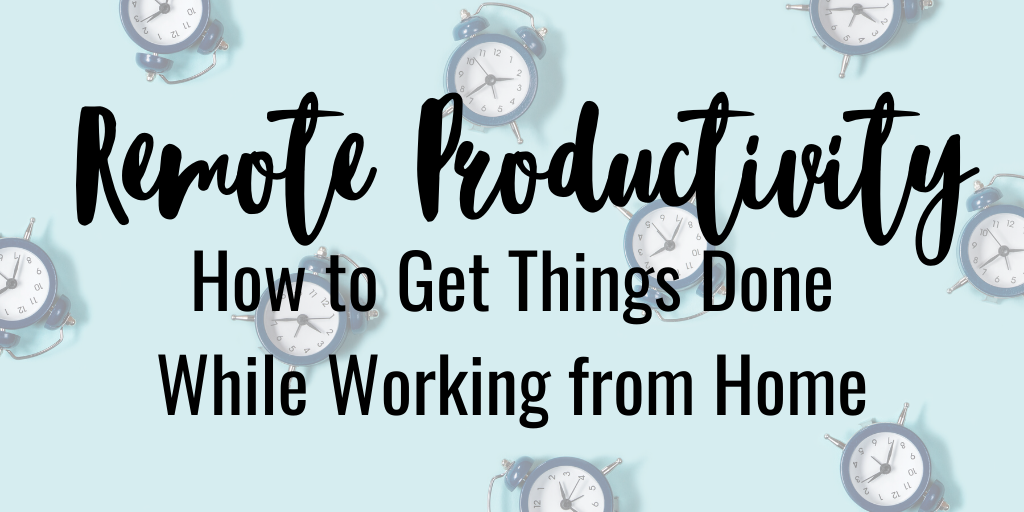

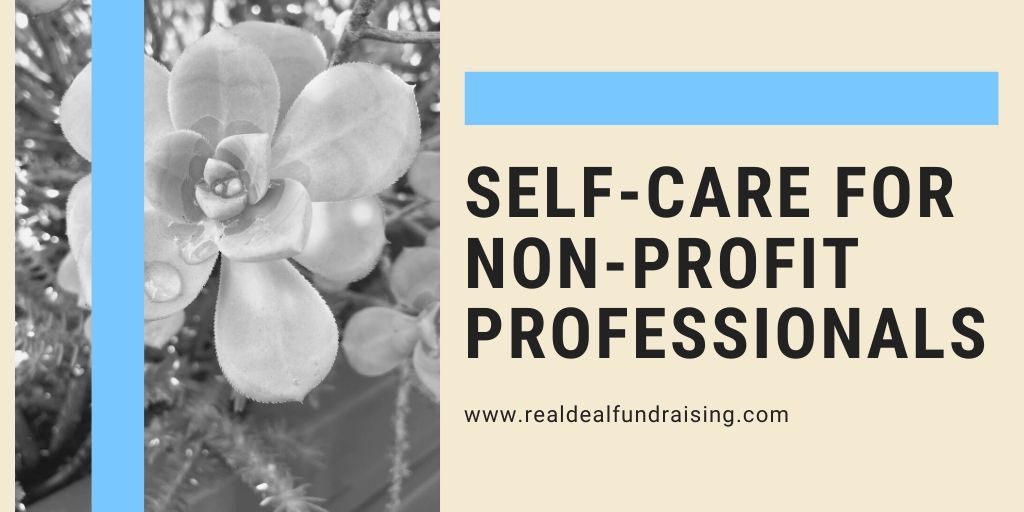
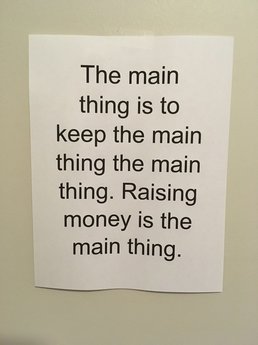
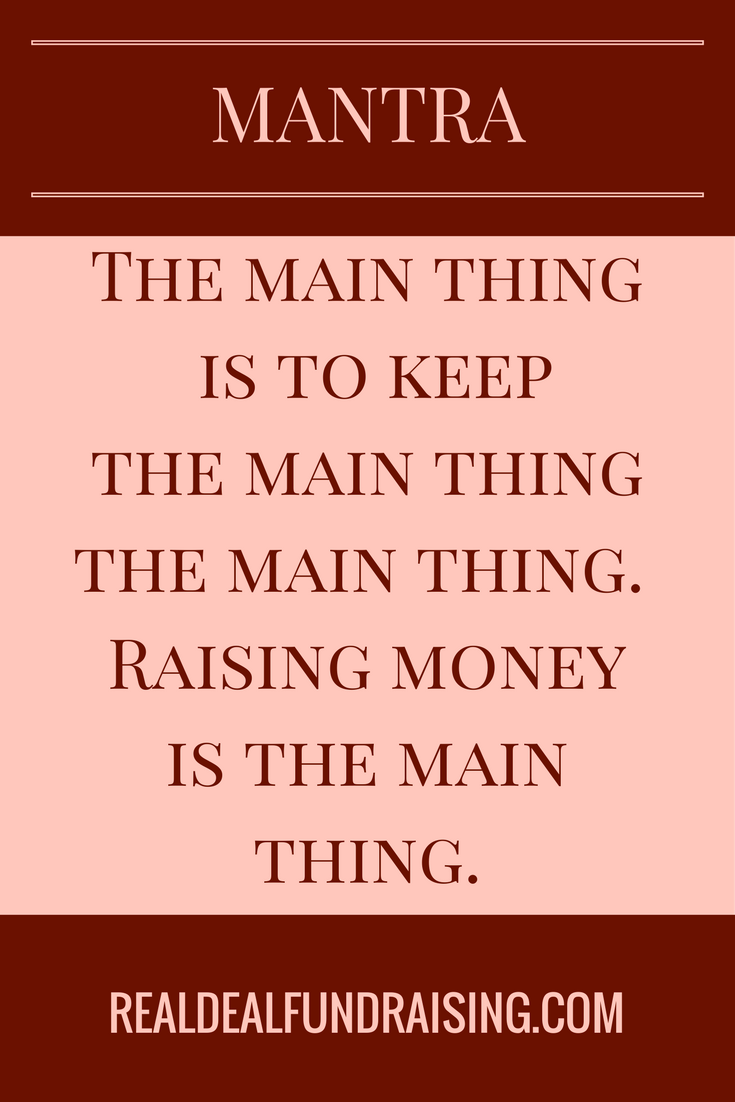

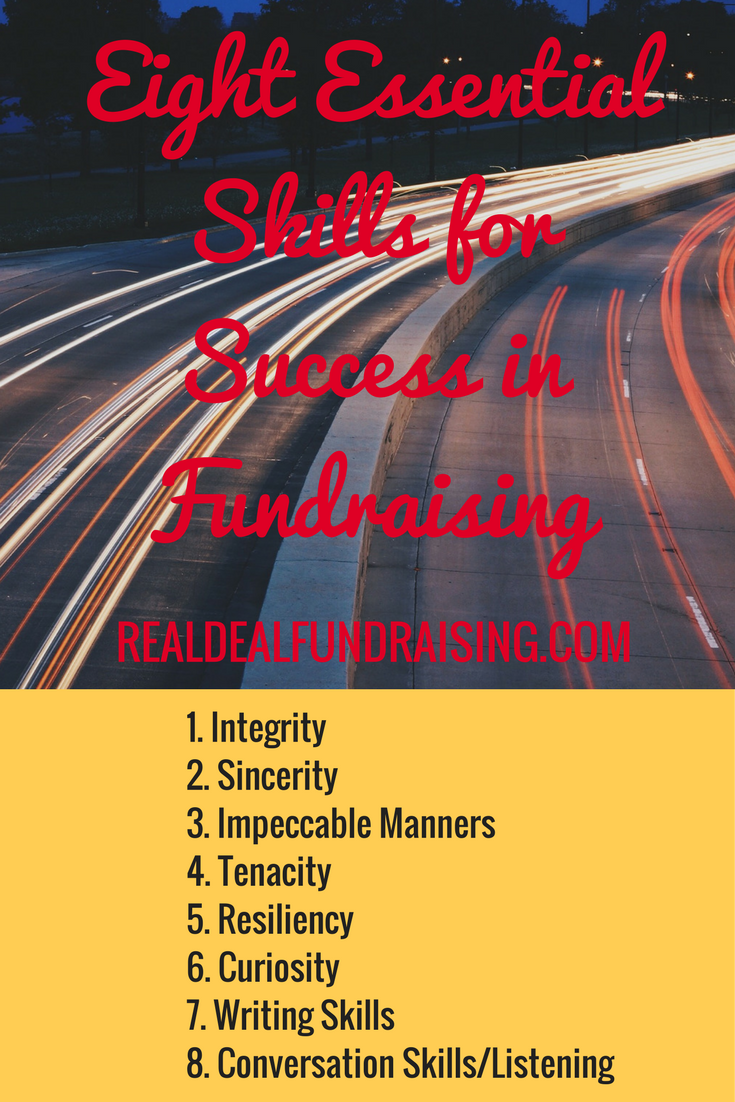
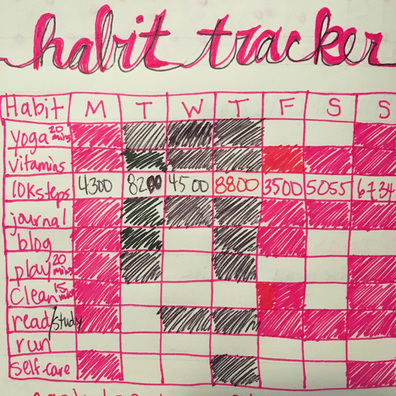

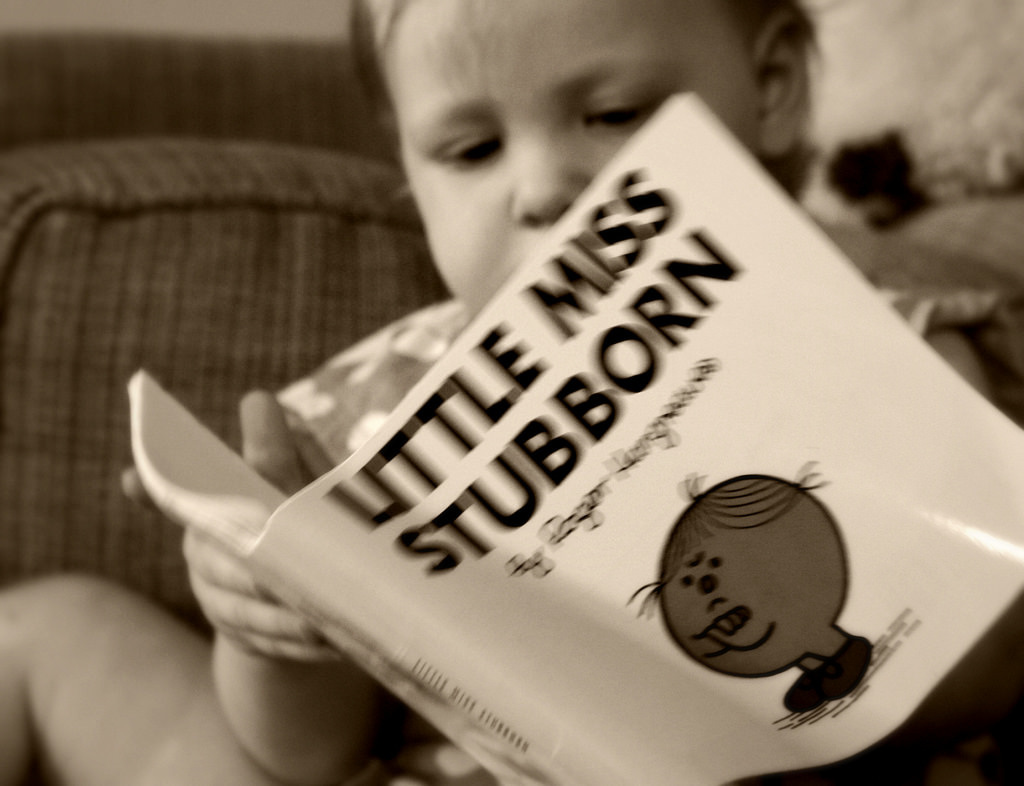
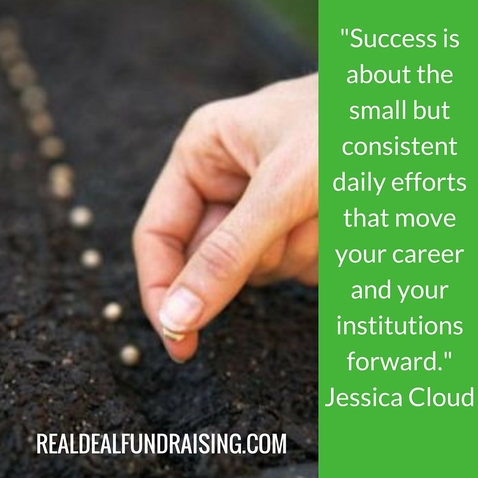
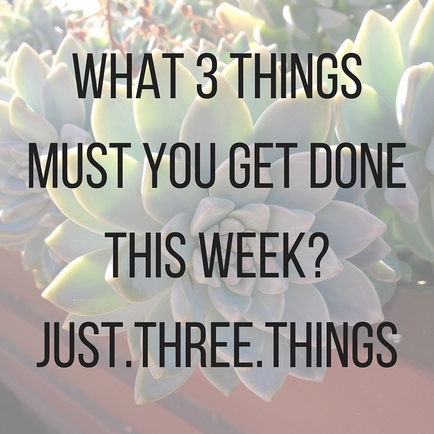


 RSS Feed
RSS Feed
